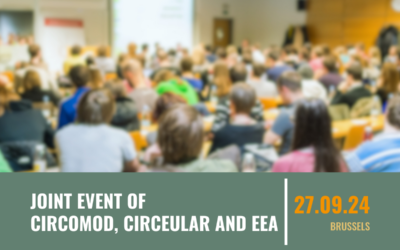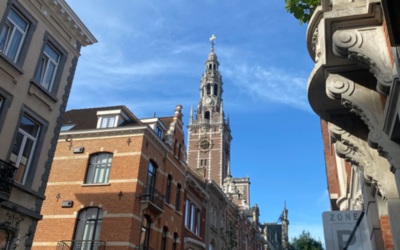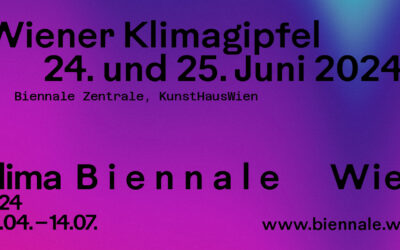News & Events
Repurposing Natural Gas Pipelines: A Path to Decarbonizing the EU’s Heating Sector?
Repurposing obsolete steel pipelines shows significant potential to reduce the environmental burden of district heating networks, transform obsolete infrastructure into an essential part of the transition, and introduces an additional circular strategy helping to achieve green energy targets.
Digitalisation of Building Design and Construction and its impact on the Circular Economy and Net Zero: final report released.
Based on a total of 41 interviews with industry professionals across 11 countries, the new report shows a picture of wide variety in the use of design tools and construction automation,
Bridging business practices and consumer behaviours in circularity: Collaborative working in action and stakeholder workshop
Twenty-eight CircEUlar members from across 12 research organisations met over three days of collaborative working. Partners have come away from Groningen energised and looking forward to continuing the collaborative working.
Celebrating 2 Years of CircEUlar!
The entire consortium is gathering for its third in-person meeting. After meetings in Vienna, Austria, and Venice, Italy, the consortium convenes in Groningen, the Netherlands, this year.
‘Towards Net-Zero through a Circular Economy: the consumer and business perspectives’ Stakeholder Workshop
This is an opportunity to hear about CircEUlar latest research and contribute to shaping the next phases of work.
CIRCOMOD, CircEUlar, and EEA Joint Event on September 27, 2024, in Brussels
On September 27, the Mid-term Events of CIRCOMOD and CircEUlar projects and the European Environmental Agency (EEA) Workshop will take place in Brussels.
Exploring Circularity Through Science and Art: CircEUlar Project at the Vienna Climate Summit
Over a four-month period, a distinguished curator, Nora Mayr, facilitated dynamic exchanges between four groups of researchers from CircEUlar with artists, under the title ‘Sensing Resonance’.
From the Circular Economy Modeling workshop: Key Insights
On Monday, July 1st, in Leuven, Belgium, the Circular Economy Modeling workshop took place, sponsored by CMCC and the EU-funded CircEUlar project, along with partners EAYE and the EU & ANR projects: IAM-Circ, Circomod, and ScarCyclET.
Ever wondered what exactly critical raw materials are?
You can re-watch a lecture on crticial raw materials by Professor Christoph Helbig held at Institute of Social Ecology, BOKU University this month!
Klima Biennale Wien 2024 x CircEUlar “Sensing Resonance”
Under the title Sensing Resonance, Nora Mayr curates encounters between the artists Imayna Caceres, Barbara Kapusta, Julian Palacz, and Borjana Ventzislavova with selected research initiatives of the CircEUlar project as part of the Vienna Climate Summit.










